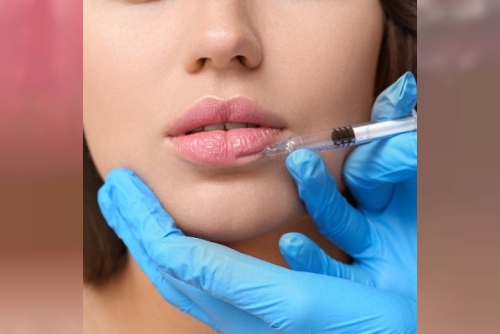As winter approaches, ensuring that your horse stays warm, comfortable, and healthy is a top priority. Cold temperatures, icy conditions, and limited access to fresh forage can pose challenges for horse owners. Proper planning and the right horse barn supplies can make all the difference in keeping your horses warm and well-cared for during the colder months.
From insulating blankets to heated water buckets and high-quality horse stable supplies, preparing for winter ensures that your equine companions remain comfortable and safe. In this guide, we’ll cover the essential winter gear every horse owner should have, the best ways to keep your barn warm, and feeding strategies to maintain your horse’s energy levels during winter.
Why Winter Care Is Crucial for HorsesHorses are naturally equipped to handle cold temperatures, but they still require additional care in winter. Here’s why:
✔ Colder temperatures increase calorie needs.
✔ Limited grazing may reduce nutrient intake.
✔ Icy conditions can lead to slips and injuries.
✔ Lack of proper shelter can result in hypothermia or illness.
Preparing your horse’s stable and using high-quality horse barn supplies can create a safe and warm environment that supports their health throughout the season.
Essential Winter Supplies for Horses1. Warm & Insulated Horse BlanketsHorses grow thicker coats in winter, but some still need blankets for extra warmth, especially senior horses, clipped horses, or those with low body fat.
✔ Types of Winter Horse Blankets:
Turnout Blankets – Waterproof and insulated, these are perfect for horses kept outside.
Stable Blankets – Provide warmth for horses kept in the barn.
Coolers & Fleece Sheets – Help wick away sweat after exercise.
✔ Choosing the Right Blanket:
Lightweight (100g fill): For mild winters or horses with thick coats.
Medium (200-250g fill): Ideal for moderate winter conditions.
Heavy (300-400g fill): Best for extremely cold temperatures.
2. Heated Water Buckets & Tank De-IcersHorses tend to drink less in cold weather, which increases the risk of dehydration and colic. Therefore, it is essential to keep their water from freezing.
✔ Use Heated Water Buckets – These prevent water from freezing and encourage drinking.
✔ Invest in Tank De-Icers – Ideal for pastures with large water troughs.
✔ Check Water Daily – Horses require 10-12 gallons of fresh water daily, even in winter.
Winter demands higher calorie intake to maintain body temperature. Ensuring proper nutrition is key.
✔ Increase Forage Intake – Hay provides warmth as it digests. Horses should consume 1.5-2% of their body weight in forage daily.
✔ Consider Grain & Fat Supplements – Add beet pulp, rice bran, or vegetable oil to increase calorie intake.
✔ Use Electrolytes – Helps encourage drinking and prevents dehydration.
✔ Provide Vitamin & Mineral Supplements – Helps balance nutrients lost from limited grazing.
A well-prepared stable helps shield horses from harsh winds and extreme temperatures.
✔ Install Stall Mats & Bedding – Helps insulate the floor and keeps horses comfortable.
✔ Check for Drafts – Cover gaps in barn doors and walls to reduce wind chills.
✔ Use Proper Ventilation – Prevents ammonia buildup and respiratory issues.
Winter conditions can be tough on hooves. Keeping them dry and protected is essential.
✔ Use Hoof Conditioners & Oils – Prevents cracks caused by dry, cold air.
✔ Regular Trims – Even if horses aren’t working, their hooves still need maintenance.
✔ Apply Hoof Boots or Studs – Provides extra traction on icy surfaces.
✔ Use heavy-duty barn curtains to keep out drafts.
✔ Close unused doors and windows to retain warmth.
✔ Ensure ventilation remains adequate to prevent condensation buildup.
✔ Straw or deep-shavings retain body heat better than thinner bedding materials.
✔ Keep bedding dry and fluffed to prevent moisture buildup.
✔ Infrared Heaters – Provide warmth without fire hazards.
✔ Heated Water Buckets – Prevent freezing and encourage drinking.
✔ Barn-Safe Space Heaters – Use carefully in well-ventilated areas.
✔ Increase Hay Rations – Digesting hay produces body heat, keeping horses warm.
✔ Monitor Weight Regularly – Horses burn extra calories in the cold; adjust feed accordingly.
✔ Provide Warm Mashes – Soaked beet pulp or warm bran mashes can be a great treat on frigid days.
✔ Feed at Consistent Times – A steady feeding schedule helps regulate metabolism.
✔ Not Checking Water Frequently – Frozen water can lead to dehydration.
✔ Overblanketing or Underblanketing – Choose blankets based on weather and horse condition.
✔ Neglecting Hoof Care: Ice buildup and frozen ground can cause hoof issues.
✔ Forgetting to Adjust Diet – Horses need extra calories in winter.
With the right horse barn supplies and horse stable supplies, you can create a warm, safe, and comfortable winter environment for your horses. Proper blankets, insulated water buckets, high-quality feed, and draft-free stalls ensure your horses stay healthy and happy throughout the season.
Investing in the right winter care essentials prevents health issues, reduces stress, and keeps your horse in peak condition year-round.
For high-quality horse supplies to prepare for winter, visit KwikPets.com—your go-to source for equine care products!
Frequently Asked Questions (FAQs)1. How cold is too cold for horses?Horses can tolerate cold weather well, but temperatures below 20°F (-6°C) may require extra care, such as blankets, increased forage, and draft protection.
2. Should I blanket my horse in winter?Blanketing depends on your horse’s coat thickness, age, health, and climate. Clipped or senior horses may require blankets, while others may not need one.
3. How do I keep my horse’s water from freezing?Using heated water buckets or tank de-icers ensures that water remains liquid and drinkable.
4. What’s the best way to increase calories for my horse in winter?Increase hay intake, add fat supplements like flaxseed or rice bran, and consider beet pulp for extra calories.
5. How often should I check on my horse during winter?Check your horse at least twice daily for water levels, blanketing needs, body condition, and hoof health.












